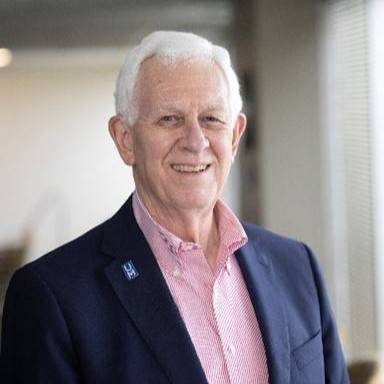Our Team
BILL GIBBONS
Executive Director, Public Safety Institute

Bill Gibbons became Executive Director of the Public Safety Institute (PSI) at The University of Memphis in September of 2016, as well as President of the Memphis Shelby Crime Commission.
Before joining the PSI and Crime Commission, from 2011 through August 2016, Gibbons served in Governor Bill HaslaHaslam'snet as Commissioner for the Department of Safety and Homeland Security and chaired a subcabinet of all state executive branch departments and agencies involved in public safety to develop a single, consistent state agenda to combat crime.
Gibbons began his state government career in 1979 as a special policy assistant to former Governor Lamar Alexander and then returned to private law practice in 1981. He rejoined state government in 1996 when Governor Don Sundquist named him District Attorney General for Shelby County to fill an unexpired term. Gibbons was then elected to a pair of eight-year terms in 1998 and 2006 and served approximately 14 years.
Before serving as District Attorney, Gibbons was a partner in the law firm of Evans & Petree.
The Crime Commission is an independent, non-profit 501(c)(3) organization that facilitates bringing public and private leaders and agencies together to focus on comprehensive crime prevention, intervention, and reduction practices in Shelby County. Spearheaded by the Crime Commission, Operation: Safe Community is a crime plan with goals and objectives to meet the crime challenge. In addition to other assignments, the Public Safety Institute (PSI) serves as a research arm to evaluate each objective of the Operation: Safe Community crime plan individually.
Gibbons chaired Operation: Safe Community from 2009 to 2015. He has also served on the Board of Directors for the National District Attorneys Association (NDAA), the American Prosecutors Research Institute (APRI), and the U.S. Department of JustiJustice'sdinating Council on Juvenile Justice and Delinquency Prevention.
Gibbons also served in part-time elective positions on the Memphis City Council and the Shelby County Commission.
Born in El Dorado, Arkansas, Gibbons holds both undergraduate and law degrees from Vanderbilt University.
He is married to United States Court of Appeals Judge Julia S. Gibbons. They have two children.
Linda H. Russell
Executive Assistant to the Executive Director
Public Safety Institute
 Linda Russell joined the Public Safety Institute (PSI) and Memphis Shelby Crime Commission in September
2016. The Crime Commission is an independent, non-profit 501(c)(3) organization that
facilitates bringing public and private leaders and agencies together to focus on
comprehensive crime prevention, intervention, and reduction practices in Shelby County.
Spearheaded by the Crime Commission, Operation: Safe Community is a crime plan with
goals and objectives to meet the crime challenges. In addition to other assignments,
the Public Safety Institute (PSI) serves as a research arm to individually evaluate
each objective of the Operation: Safe Community crime plan.
Linda Russell joined the Public Safety Institute (PSI) and Memphis Shelby Crime Commission in September
2016. The Crime Commission is an independent, non-profit 501(c)(3) organization that
facilitates bringing public and private leaders and agencies together to focus on
comprehensive crime prevention, intervention, and reduction practices in Shelby County.
Spearheaded by the Crime Commission, Operation: Safe Community is a crime plan with
goals and objectives to meet the crime challenges. In addition to other assignments,
the Public Safety Institute (PSI) serves as a research arm to individually evaluate
each objective of the Operation: Safe Community crime plan.
Before joining the PSI and Crime Commission, Russell served in Nashville, Tennessee, as the Special Policy Advisor for the Department of Safety and Homeland Security beginning in February 2011 under the administration of Commissioner Bill Gibbons. In that capacity, she served as the chief staff assistant to the Governor's Safety Subcabinet. Before her position with the Department of Safety and Homeland Security, she worked in administration at the Shelby County District Attorney General's office for over eight years.
Russell, a native Memphian, received her education in Memphis and began her government career in the Internal Revenue Service Computer Division. A year and a half later, Russell accepted a position in the United States District Court for the Western District of Tennessee and served 19 years with the federal government.
 Amaia Iratzoqui
Amaia Iratzoqui
Research Director/Associate Professor
Dr. Amaia Iratzoqui, associate professor in the Department of Criminology and Criminal Justice, is the Public Safety Institute's Research director. Dr. Iratzoqui specializes in research around the gendered causes and consequences of victimization, including domestic and intimate partner violence. Her recent work explores the implications of gender and victimization within Memphis and Shelby County through partnerships with agencies, including the Memphis Police Department, Shelby County Crime Victims and Rape Crisis Center, Family Safety Center, CasaLuz, Kindred Place, and other domestic violence-serving organizations.
Before becoming research director, Dr. Iratzoqui partnered with the Public Safety Institute to assess the effectiveness of domestic violence services in Memphis and Shelby County. As research director, she works to connect faculty with practitioners within and around Shelby County to (1) conduct research and evaluations addressing crime and crime prevention, including assessments of various steps under the latest local Safe Community Action Plan (2022-2026) and (2) identify and pursue additional grant opportunities.
 James C. McCutcheon
James C. McCutcheon
Associate Professor/Senior Research Developer
Max Helms
 Senior Research Assistant
Senior Research Assistant
Max Helms, Lead Research Assistant, received a Master's in Criminal Justice from The University of Memphis and a Bachelor's in Criminal Justice from Austin Peay State University. He joined the Public Safety Institute (PSI) in July of 2017.
Born in Chattanooga, Tennessee, he has worked in multiple cities across the state and has a background in security, loss prevention, data analysis, and mapping.
He is married to Brianna Siebert, the Membership and Volunteer Manager for the Memphis Botanic Garden.
Jaline King
Research Assistant
Jaline King attended and graduated from Byhalia High School. She continued her education at Blue Mountain Christian University, where she earned a Bachelor of Science degree. Jaline then pursued a master's degree in criminal justice at the University of Memphis, where she was inducted into the Omicron Delta Kappa Honor Society and the Phi Kappa Phi Honor Society.
Jaline credits her parents with playing a significant role in her life by encouraging her to continue her education and teaching her morals and values. Above all, they inspired Jaline to believe in herself, always strive to do her best, and never give up when faced with challenges.
Jaline looks forward to the challenges ahead and is committed to working hard to succeed as a PSI research assistant.
